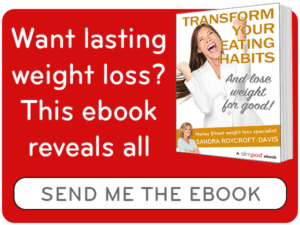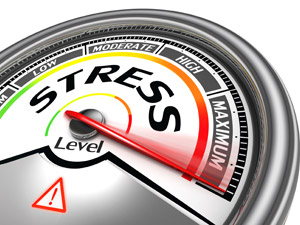AS autumn’s falling leaves turn into winter’s dark early nights, do you find you’re eating more and your habits are changing? Do you seek comfort in food and lose control? There’s a really good reason this happens and I’ve created a four-week mini-series of video coaching to help you understand more about what’s going in your head
Then you’ll be able to deal with it and stop being stuck in the same cycle year after year after year. Yes, stop winter comfort eating!
In the first video I look at why our brains programme us to repeat unhelpful behaviour and how we can stop winter comfort eating and take control.
I’ll be asking what emotional eating is and how you can know that it’s happening. Click on the picture below to start the video.
Please share the blog and the video with all your friends by hitting one of the share buttons at the foot of the page! You’ll help them to stop winter comfort eating, too.
And do please, please leave a comment at the very end of this blog post. I love reading them all and they are so inspiring for other people to read, too.
SUMMARY: Stop winter comfort eating
** We’re constantly changing our state of mind because of things that happen around us. It can be what we see, hear, taste, smell or feel. Gradually these responses form a habit.
** Emotional eating helps us to take the edge off something that’s stressed us or made us unhappy. That’s because food can be a quick fix, releasing soothing dopamine in the brain and temporarily making us feel better.
** Emotional eating is never really about food. Food has just become a way of dealing with how you’re feeling, be it anger, stress, sadness, anxiety or joy.
** You can learn healthier ways to deal with your emotions, avoid triggers, conquer cravings, and finally put a stop to emotional eating. It’s not about being on a constant diet, it’s about understanding that emotional hunger can’t be filled with food.
RELATED POSTS: Stop winter comfort eating
Stop the self-sabotage
Evening danger time
Healthy winter food
Create good habits
LISTEN TO PODCAST
Here’s Sandra’s advice from the video on how to stop winter comfort eating which you can listen to as a podcast:
Please share the podcast with all your friends by hitting one of the share buttons at the foot of the page!
NEXT TIME on how to stop winter comfort eating
Watch out for part two in Sandra’s mini-series on how to stop winter comfort eating. She’ll be asking the important question: Do know what hunger really feels like?
FULL TRANSCRIPT
Some people like to read as well as watch or listen. So here’s a full transcript of the video on how to stop winter comfort eating.
Do you find you’re eating more and your habits change when the weather gets colder and we go from summer time to autumn? Do you seek comfort in food and lose control? Well, there’s a really good reason this happens and I’m here to help you understand more about what’s going in your head so you can deal with it and stop being stuck in the same cycle year after year after year.
This behaviour cycle is such a big reason people spend their lives yoyo dieting and then they start blaming themselves for the fat around their middle – and everywhere else for that matter. But it’s just not good because then all sorts of horrible things happen.
They get stressed and they stop believing they can lose weight. Then that makes them feel really bad. If this is you, this doesn’t need to be the way you live your life at all. It IS possible to break this cycle and I’m here to tell you how.
You see as we go through life our brains learn to behave in a certain way in response to a stimulus. From birth we’re programmed to respond to certain stimuli, such as the sweet smell of our mother’s milk.
We’re constantly changing our state of mind because of things that happen around us. It can be what we see, hear, taste, smell or feel. Gradually these responses form a habit.
And when the habit is repeated enough times it becomes an unconscious or automatic action. This is why so many people fall into the trap of eating more when we get to autumn – it’s an automatic thing!
So, what is emotional eating and how do you know it’s happening? We’ve all done it. Munched mindlessly to take the edge off something that’s stressed us or made us unhappy. That’s because food can be a quick fix, releasing soothing dopamine in the brain and temporarily making us feel better.
You see we’re creatures of pleasure. We love feeling good and our brains move towards pleasure and away from pain, so the temptation of curling up on the sofa and eating donuts and chocolate when we’re unhappy, or when it’s cold and wet outside, can be far more appealing than going to the gym or for a run.
But the trouble starts when the urge to use food to feel good becomes a hardwired habit that’s hard to stop.
And when the season changes and it gets colder, comfort eating can go into overdrive. We’ve evolved with a subconscious urge to eat energy-dense food and store fat during the colder months. Having fewer daylight hours doesn’t help either, with one in three of us suffering from low mood during the winter.
But the winter blues can be lifted with comforts other than food, and shorter days don’t have to lead to larger waistlines. Emotional eating is never really about food. Food has just become a way of dealing with emotion. One of the first things I ask when a person has lost control of food is this: ‘Are you an emotional eater’ and it’s amazing the response I get.
A lot of people don’t even realise they eat for reasons other than being hungry and emotional eating is exactly that – eating when you’re not hungry, but as a result of how you’re feeling, be it anger, stress, sadness, anxiety or joy.
Perhaps you’re trying to escape from a particular situation or feeling, or want to feel soothed, or maybe because it’s dark and cold outside. Here are a few main differences between emotional and physical hunger: Emotional hunger comes on suddenly; physical hunger is gradual.
You’ll feel the need to be satisfied instantly if it’s emotional eating. Emotional hunger leads to cravings – especially those high in fat and sugar. With emotional eating you won’t feel satisfied – even with a full, bloated stomach. Then as if all that isn’t bad enough, you’ll feel feelings of guilt, shame and being powerless.
Typical signs include eating in secret, hiding food packaging, buying more food than you need and being isolated. And you know those inner voices in your head – the ones that say things like ‘Go on, it’ll make you feel better’ and ‘You haven’t eaten that much today, why not?’ Those are your emotions talking.
The key thing is to be aware this is happening because your brain goes through a process and if you can interrupt this process you can help to stop it. Awareness is the key because emotional hunger can’t be filled with food.
Eating may feel good in the moment, but the feelings that triggered the eating are still there. And you often feel worse than you did before because of the unnecessary calories you’ve just consumed. You beat yourself for messing up and not having more willpower.
Then you also stop learning healthier ways to deal with your emotions, you have a harder and harder time controlling your weight, and you feel increasingly powerless over both food and your feelings.
But no matter how powerless you feel, it is possible to make a positive change. You can learn healthier ways to deal with your emotions, avoid triggers, conquer cravings, and finally put a stop to emotional eating.
It’s not about being on a constant diet, it’s about understanding that emotional hunger can’t be filled with food.
NEXT TIME
Watch out for part two in Sandra’s mini-series on how to stop winter comfort eating. She’ll be asking the important question: Do know what hunger really feels like?






2 thoughts on “Stop winter comfort eating in its tracks – mini-series, part one”
Excellent video Sandra!! I’m sharing it with as many people as I can. Two of them are borderline diabetic.
Great video- made me stop and think about when I’ve recently emotionally eaten. Emotional hunger can’t be filled with food – that’s a strong phrase I’m lodging in my mind!